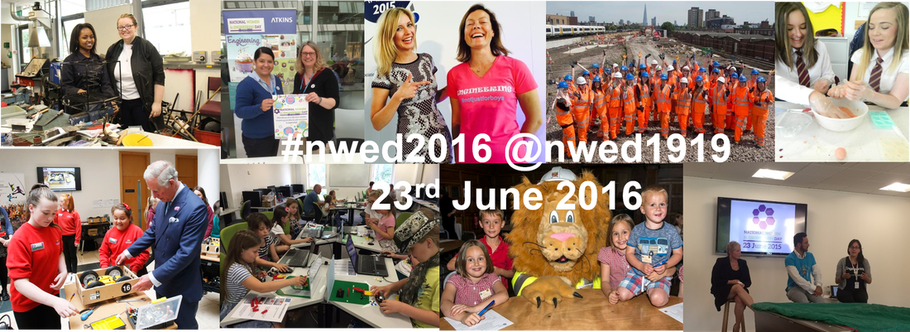
Today marks another year for the National Women in Engineering Day, an awareness campaign to raise the profile of women in engineering and focus on all the opportunities that are available for women or girls in the industry.
The theme of this year’s day of recognition is #RaisingProfiles, and it celebrates some of the top women in engineering.
There is plenty of push in the states for getting more women and girls into things like coding, engineering, science and math careers, but elsewhere, the percentage of women entering these fields is surprisingly low. According to the Women’s Engineering Society, only 9% of the engineering workforce is female, and the U.K. has the lowest percentage of female engineering professionals in Europe. Only half of graduates actually leave college and go into STEM roles.
What’s a realistic way that we can actually get these women to continue their education and pursue careers in software development or engineering, after they graduate college?
From the women SD Times has spoken to about their success as female developers or female leaders in the tech space, it seems they all have one answer: get young girls and women to have strong, female role models. They need to have a community that encourages them to pursue engineering, and they need to have mentors who share their same passions and willingness to advance their careers.
Women need strong female mentors
In honor of this U.K.-led day, Sha Ma, senior director of software engineering at SendGrid, is sharing her own journey as an engineer, hoping to empower other women in the United States who are interested in pursuing a career in STEM. Since she graduated from MIT in 2004, she has joined women in engineering groups and has networked to help lead the way to break down some of these barriers in the engineering field.
“As women in engineering, we talk a lot about what’s been happening and how we can support each other,” said Ma. “Creating a community allows women to help each other and provides a platform to encourage mentorship and help them think about the bigger picture beyond their engineering role.”
Mentorship has been an important part of her own career path, she said, and Ma always asked for feedback from peers who weren’t necessarily her direct managers. She did this because they gave her unbiased opinions based on personal experiences, and their mentorship was more on how she can solve her own challenges.
“Having that network of mentors to bounce ideas off helped me a lot throughout my career progression,” said Ma. “I’ve noticed people who have had similar guidance and mentorship earlier on in their career tend to have a smoother career progression, because they were able to learn from other people and avoid any hurdles rather than relying on a trial-and-error approach.”
In one of her roles, Ma was able to be a part of a women community program within her organization. It established a mentorship program that helped women who were looking for mentors, and it matched them with someone who best fit their skills and personalities. As women in engineering, they talk a lot about what is happening in the industry and how they can help one another. It provides a platform to encourage mentorship, she said, and it allows women to think of their lives and careers outside of just that engineering role.
Awareness and encouragement are also crucial to building out a solid STEM pipeline, said Ma. On this front, she’s really optimistic. SendGrid’s CEO Sameer Dholakia attended the National Center for Women in Technology conference in Las Vegas, and they learned that there is a dramatic improvement in the gender balance coming out of university engineering programs today compared to 10 to 15 years ago, said Ma.
Eventually, the hope is that there will no longer be a need to host a day meant to highlight women developers or engineers.
“I hope things will be dramatically different in 10 to 20 years when our kids are in the position of entering their professional careers and pursuing their dreams,” said Ma. “They won’t have to think about the national women in ___ day; it will just be natural for them.”
Making every day a celebration
What can your own company do to take action or recognize women in engineering? The Women’s Engineering Society (which is behind NWED) has a few suggestions.
To start, host your own networking, mentoring, career or social event. Make a plan to increase corporate diversity and launch it today. Take time to acknowledge female engineers, raise their profile and celebrate their achievements.
Companies can reach out to local schools and talk to students about the possibilities of a career in software development or engineering. Take another step forward and feature an article in a newsletter or website about the female engineers that work for your company. Continue the conversations on social media platforms by using the hashtags like #NWED2016 or #RaisingProfiles. You can also include SD Times in the conversation by reading our Women in Technology series, or by using the hashtag #WomenInTechnology.






